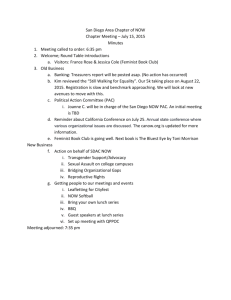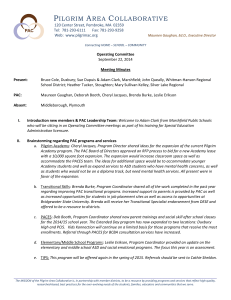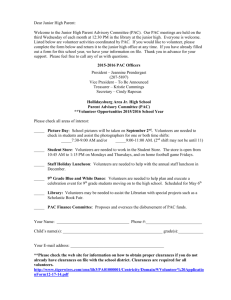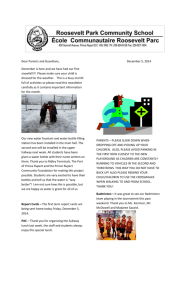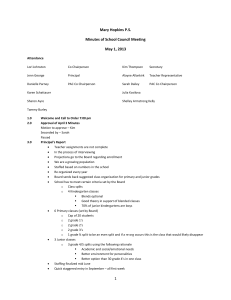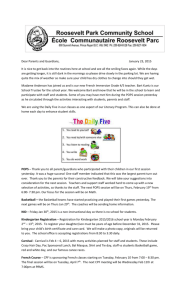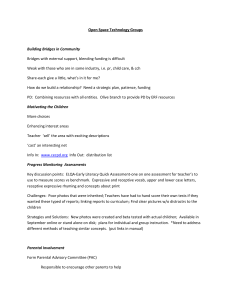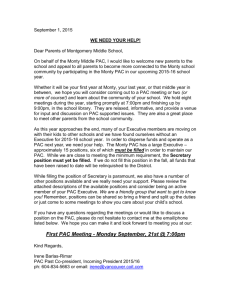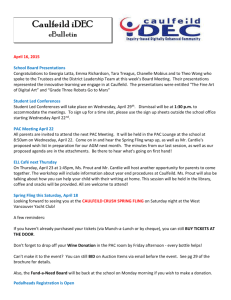for the PAC Leader - South Seattle College
advertisement
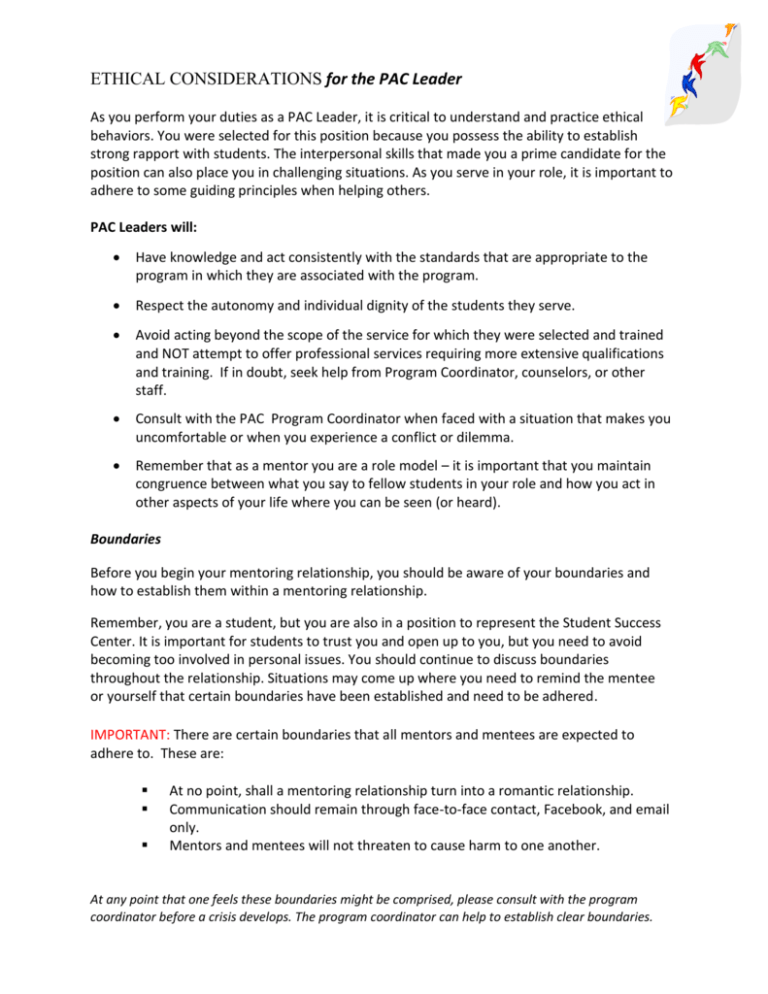
ETHICAL CONSIDERATIONS for the PAC Leader As you perform your duties as a PAC Leader, it is critical to understand and practice ethical behaviors. You were selected for this position because you possess the ability to establish strong rapport with students. The interpersonal skills that made you a prime candidate for the position can also place you in challenging situations. As you serve in your role, it is important to adhere to some guiding principles when helping others. PAC Leaders will: Have knowledge and act consistently with the standards that are appropriate to the program in which they are associated with the program. Respect the autonomy and individual dignity of the students they serve. Avoid acting beyond the scope of the service for which they were selected and trained and NOT attempt to offer professional services requiring more extensive qualifications and training. If in doubt, seek help from Program Coordinator, counselors, or other staff. Consult with the PAC Program Coordinator when faced with a situation that makes you uncomfortable or when you experience a conflict or dilemma. Remember that as a mentor you are a role model – it is important that you maintain congruence between what you say to fellow students in your role and how you act in other aspects of your life where you can be seen (or heard). Boundaries Before you begin your mentoring relationship, you should be aware of your boundaries and how to establish them within a mentoring relationship. Remember, you are a student, but you are also in a position to represent the Student Success Center. It is important for students to trust you and open up to you, but you need to avoid becoming too involved in personal issues. You should continue to discuss boundaries throughout the relationship. Situations may come up where you need to remind the mentee or yourself that certain boundaries have been established and need to be adhered. IMPORTANT: There are certain boundaries that all mentors and mentees are expected to adhere to. These are: At no point, shall a mentoring relationship turn into a romantic relationship. Communication should remain through face-to-face contact, Facebook, and email only. Mentors and mentees will not threaten to cause harm to one another. At any point that one feels these boundaries might be comprised, please consult with the program coordinator before a crisis develops. The program coordinator can help to establish clear boundaries. Cultural Sensitivity A person who is culturally sensitive is aware that there could be differences between their culture and another person’s, and that these differences could affect their relationship and the way they communicate with each other. Culturally sensitive people attempt to be free from prejudices and preconceptions about other cultures. As a mentor, it is important to be aware of any cultural differences between you and your mentee. You must learn to accept other cultures (even if you do not agree entirely) and not let differences in beliefs hinder the relationship. It is also important to familiarize yourself with common behaviors of the different culture. Certain behaviors or expressions that may seem acceptable to you could be perceived as rude or derogatory to others. Importance of Confidentiality There must be a mutual understanding between the PAC Leader and student that conversations are protected between the two of them. A bond of trust is formed when a student comes to share something with you. It is important that you give them your attention and ensure them, if possible, that what they tell you is kept in confidence. Information shared between a PAC Leader and student cannot always be confidential. In some specific instances, maintaining that bond of trust means that you need to share information with others. If a student discusses with you any of the following situations: - self-harm - harm to or from others You are responsible to report that information immediately to the appropriate persons (PAC Program Coordinator, Counselors, etc.). If the student has a condition that is beyond your ability to assist with (serious neurosis, alcohol, drug problems or depression), it is in the student’s best interest that you find a way to share that information with staff. Specifically, ask the student if he/she would be okay if you were to share the information with staff; set-up the ‘who, what, and when’ you will go about sharing the information with the agreed person. Mandatory Reporter Mandated Reporters must report suspected child abuse or neglect (or cause a report to be made) to law enforcement or CPS when they believe a child has suffered abuse or neglect or may be at risk of abuse or neglect. RCW 26.44.030 (1)(a) - WA State DSHS Higher Education Employees are included in this reporting requirement. As advised by the Human Resources Director, all mentors must adhere to this reporting requirement as well. 1. P.A.C. leaders must view the mandatory reporter information at: http://www.dshs.wa.gov/ca/safety/abuseReq.asp?2 OR 2. Review the power point section in the back of your PAC notebook AND 3. Sign the CONFIDENTIALITY STATEMENT in your notebook - return to the Program Coordinator as soon as possible. SAFETY Safety should always be a top priority for you and the CSS students. In an emergency situation, please call 911 first and then notify Campus Safety and Security at 793-2286. If not an emergency but you are in need of assistance because of a safety issue, contact Campus Safety and Security at 793-2286. Other steps to take: Contact the Tutor Program Coordinator about any/all calls made to Campus Safety and Security that is associated with the Tutoring Program Review BBCC Campus Safety and Security procedures and information at www.bigbend.edu/safety REMEMBER: If ever in doubt about how to handle a situation, see the PAC Coordinator immediately. Ethical standards (Excerpted from Student Helping Students, Ender, S. and Newton, F., 2000, Jossey-Bass Publishers)
